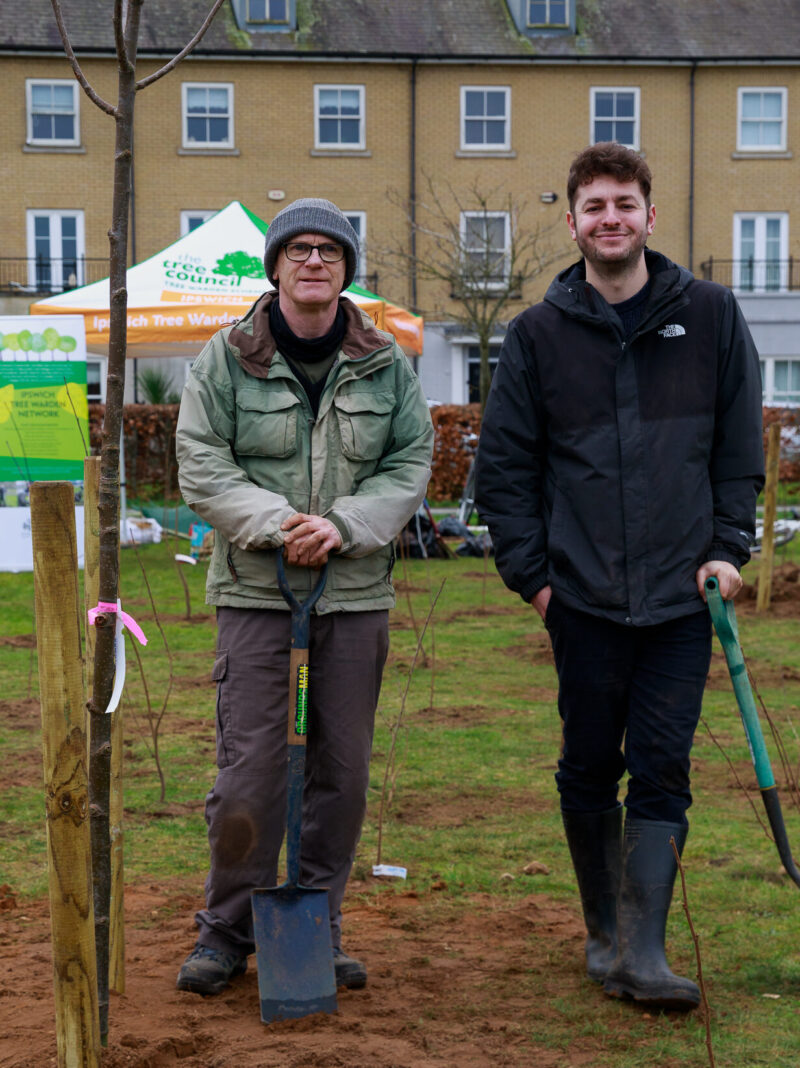
Did you know that Ipswich is a Tree City of the World?
Ipswich is one of just 21 towns and cities in the United Kingdom that have received special recognition as part of Tree Cities of the World for commitment to effective urban forestry management.
To earn Tree Cities of the World status, Ipswich had to meet five standards for responsible care, effective tree management, regular assessment, tree management plans, and hosting tree events.
I’m proud that Ipswich Borough Council (IBC) took the lead role on this.
Ipswich benefits from many green areas and great parks, which have lots of trees. It’s no surprise to me that we have become of the few places in Britain to be awarded the status of Tree City of the World.
Planting more trees is the quickest and easiest way to improve a city’s tree canopy and invest in a brighter future. I was pleased to join with other volunteers to help plant 1,000 trees at Bonny Crescent on Ravenswood. The volunteers, of all ages, were joined by several Tree Wardens.
The Ipswich Tree Warden Network is a group of volunteers passionate about supporting trees in Ipswich. This could be anything relating to trees, from organising tree themed events to planting trees, talking to schoolchildren with their local trees to growing trees at home! They also water trees in the summer.
No prior training or experience is needed – just a love of trees and a few hours to spare. Every year, tree wardens’ plant and care for thousands of trees and dedicate thousands of hours of volunteer time to the care of the trees in their community.
Interested? Take a look at https://www.ipswich.gov.uk/ipswich-tree-warden-network.
The planting at Bonny Crescent was done using the Miyawaki method, named after Japanese botanist, Akira Miyawaki, who pioneered this method of growing dense urban forests on small patches of land. What’s unique about these forests is that they grow much more quickly compared to a conventional forest that may take over 100 years.
I was planting “whips”, which are young, unbranched tree seedlings. These whips are typically around a metre in height and are approximately 2 to 3 years old. It just looks like a stick after planting so not very exciting!
Some larger fruit trees have also been planted around the outside of the crescent to help provide more habitats for wildlife and provide a community orchard.
Trees are long-lived, but do not last forever. IBC does put a lot of effort into long term maintenance of trees with parks staff, tree wardens and volunteers all helping to keep Ipswich green. However, there are occasions where trees must be removed. Trees can live for many decades. However, old age, storm damage or disease can cause a tree to become brittle, lose branches or fall down entirely. So, to protect everyone’s safety, we remove trees that are a risk. This tree management is an important part of what we do.
IBC doesn’t remove trees lightly, but if we do, we have a two for one replacement policy. The new trees will be planted as close as possible to the old ones.
Thanks to the work of staff, wardens and volunteers, our town’s parks are some of the country’s best, with 6,000 trees being planted in the last two years alone.
Two of the priorities of Labour-run Ipswich Borough Council are becoming a carbon neutral council and promoting community wellbeing and fairness in Ipswich. Trees are an integral part of both priorities and will make Ipswich a better place today and for generations to come.

